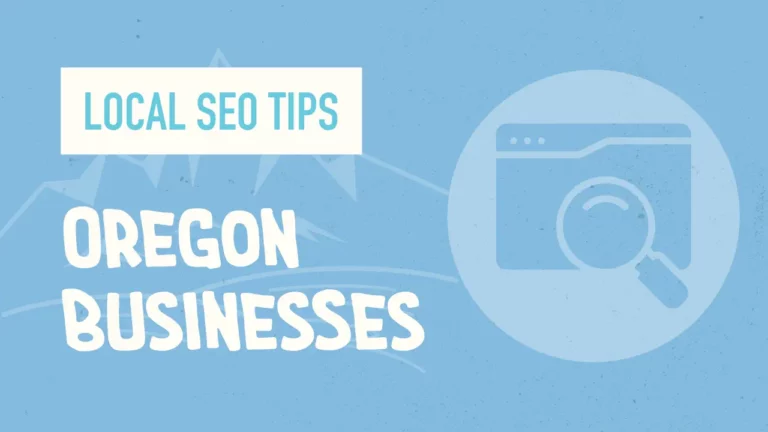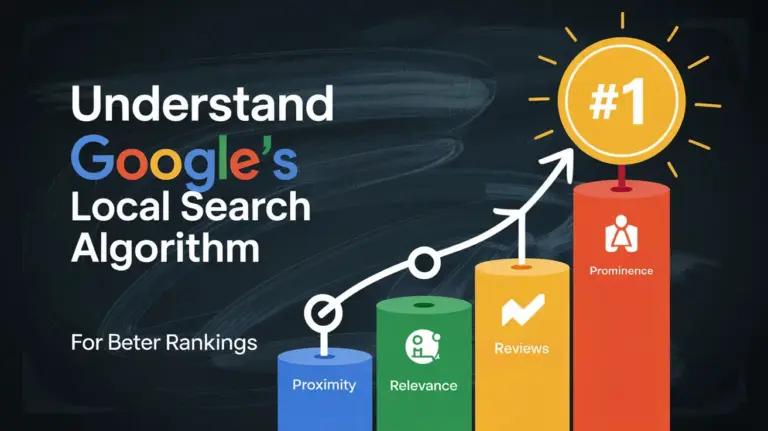
Have you ever wondered why some businesses attract more customers while others struggle to get noticed? The answer often lies in their use of local keywords. In today’s competitive market, understanding how to leverage these keywords can make a significant difference in your business’s visibility and success.
Local keywords are essential for helping your business rank higher in search engine results for geographically specific queries. By targeting the right keywords, you can improve your website’s visibility, drive more organic traffic, and ultimately attract more foot traffic and sales. Tools like Semrush’s Keyword Magic Tool can help you identify and map the most effective keywords for your business.
Aligning your keyword strategy with your business objectives is crucial for maximizing your return on investment. This guide will walk you through the process of understanding local search intent, mapping keywords, and optimizing your location pages for better performance. Whether you’re a small local shop or a larger enterprise, these strategies will help you stay competitive in the ever-evolving digital landscape.
Key Takeaways
- Local keywords improve your website’s visibility in search engine results.
- Targeting the right keywords increases organic traffic and foot traffic.
- Tools like Semrush’s Keyword Magic Tool aid in effective keyword mapping.
- Aligning keyword research with business objectives boosts conversion rates.
- Optimizing location pages enhances your business’s online presence.
Understanding Local SEO and Its Impact
Local SEO is a crucial strategy for businesses aiming to attract customers in specific geographic areas. By optimizing your online presence for local searches, you can significantly improve your visibility in search results, driving more foot traffic and sales.
What Are Local Keywords?
Local keywords are phrases that include geographic modifiers, such as city names or “near me,” which customers use when searching for products or services in their area. These keywords help businesses rank higher in local search results, making it easier for potential customers to find them. For example, a search like “coffee shop in New York” uses a local keyword to target a specific location.
Explicit vs. Implicit Local Search Intent
Explicit local search intent involves clear geographic terms, like “locksmith near me” or “Italian restaurants in Chicago.” These searches explicitly mention a location, making it easier for search engines to deliver targeted results. On the other hand, implicit local intent doesn’t include a specific location but relies on context, such as “best pizza,” where the search engine infers the user’s location based on their device’s location data.
Incorporating city names and service-related phrases into your content helps capture local search queries. For instance, a florist in Los Angeles could use keywords like “Los Angeles flower delivery” to attract local customers. Search engines analyze these signals to tailor results, ensuring users find relevant businesses in their area.
Using explicit geographic modifiers can lead to more targeted leads. For example, “plumbing services in Miami” is more specific than “plumbing services,” making it more likely to attract customers in Miami. This approach not only improves visibility but also increases the chances of conversion by addressing the specific needs of local customers.
By understanding local search intent and incorporating the right keywords, businesses can enhance their online presence and attract more local customers. This foundational understanding is key to developing an effective local SEO strategy.
Identifying Business Solutions and Location Opportunities
Understanding your business’s core offerings and how they align with local demand is the first step in creating an effective keyword strategy. This process involves identifying seed keywords that represent your business’s primary services or products.
Developing Seed Keywords
Seed keywords are broad terms that define your business, such as “coffee shop” or “florist.” These keywords are the foundation of your strategy because they can be expanded with location-based modifiers to create more targeted phrases. For example, a florist in Los Angeles might start with “flower delivery” as a seed keyword and then add “Los Angeles” to create “flower delivery Los Angeles.” This approach helps businesses rank better in local search results.
Choosing the Right Location Modifiers
Location modifiers, such as city names or neighborhoods, refine your keywords to target specific geographic areas. For instance, “coffee shop near me” is more specific than “coffee shop.” Tools like Semrush can help you expand and validate these keywords, ensuring they have local intent. Understanding the user’s search journey, from general terms like “best pizza” to specific queries like “best pizza in Chicago,” is crucial for aligning your strategy with customer needs.
By merging your business strategy with local SEO efforts, you can attract more customers. For example, a locksmith in Miami could use “locksmith Miami” as a seed keyword and then add modifiers like “emergency locksmith Miami” to target specific needs. This approach ensures your business appears in more targeted search results, driving local traffic and sales.
Performing Keyword Research for SEO Location Based Keywords
Effective keyword research is the cornerstone of any successful digital marketing strategy, especially when targeting specific geographic areas. By leveraging powerful tools and analyzing key metrics, businesses can uncover valuable insights that drive their online visibility and customer engagement.
Leveraging Powerful Keyword Tools
Tools like Semrush’s Keyword Magic Tool are indispensable for identifying location-based keywords. These tools allow you to filter by location modifiers, such as city names or regions, ensuring your keyword list aligns with local search intent. For instance, a business in Miami might use the tool to discover terms like “Miami landscaping services” or “gardening supplies in South Florida.”
Analyzing Search Volume and Ranking Potential
Once you’ve gathered your keywords, it’s crucial to analyze metrics like search volume, keyword difficulty, and ranking potential. High search volume terms, such as “New York pizza delivery,” indicate popular queries, while low search volume terms, like “eco-friendly landscaping Miami,” might attract a niche audience. Balancing these factors helps you prioritize keywords that offer the best opportunity for visibility and conversion.
- Use tools to identify and filter location-based keywords.
- Analyze metrics to determine keyword effectiveness.
- Narrow your list to high-impact terms.
- Combine explicit and implicit local searches for broader reach.
- Refine your strategy with competitor insights.
By focusing on the right terms and leveraging competitor analysis, you can create a keyword strategy that enhances your online presence and drives local success. Proper keyword research is the foundation of an effective local SEO strategy, ensuring your business stands out in a competitive landscape.
Mapping Your Keywords to Optimize Website Content
Organizing your keywords strategically is key to creating content that resonates with your audience and search engines. By mapping each keyword to a specific page or section, you ensure a cohesive and targeted approach to attracting potential customers.
Creating Location-Specific Pages
Location-specific pages are tailored to address the needs of customers in particular areas. For example, a business in Miami might create a page focused on “Miami landscaping services,” detailing local climate considerations and popular garden designs. These pages speak directly to local audiences, making them more relevant and engaging.
On-Page SEO: Titles, Meta, and Headers
Optimizing on-page elements is crucial for visibility. Titles should be concise (under 60 characters) and include target keywords. Meta descriptions need to be compelling, around 150-160 characters, and include a call-to-action. Headers (H1, H2s) should naturally incorporate keywords to guide users and search engines through your content.
| Element | Best Practice | Example |
|---|---|---|
| Title Tag | Under 60 characters, includes main keyword | “Miami Landscaping Services | Local Experts” |
| Meta Description | 150-160 characters, includes keyword and CTA | “Discover top Miami landscaping services. Get a quote today!” |
| Headers | Use H1 for main title, H2s for sections | H1: “Miami Landscaping Services” H2: “Why Choose Our Miami Landscaping Company” |
Tips for natural keyword integration include using synonyms and varying phrases to avoid repetition. Avoid duplicate content by ensuring each page offers unique value, even when targeting similar keywords. This approach not only enhances user experience but also improves search engine rankings, driving more organic traffic and boosting conversions.
Boosting Local Visibility with Google Business Profile
Optimizing your Google Business Profile (GBP) is a powerful way to enhance your local search presence. A well-crafted GBP helps your business appear in the local pack and on Google Maps, making it easier for customers to find you.
Optimizing Your Google Business Profile
To maximize your GBP’s effectiveness, start by incorporating location-based keywords in your business description and categories. This helps Google understand your target area and match you with relevant searches. For example, a bakery in Chicago could use keywords like “Chicago bakery” or “fresh bread near me” to attract local customers.
Maintaining consistency between your GBP and website is crucial. Ensure your business name, address, and phone number (NAP) are identical across both platforms. This consistency signals to Google that your business is trustworthy and credible.
Keep your GBP updated with real-time information. Accurate business hours, especially during holidays, and precise location data are essential. Google may take up to five business days to verify new listings, so plan accordingly to avoid delays.
Engage with customer reviews to build trust. Responding to reviews, whether positive or negative, shows customers you value their feedback. High ratings and positive reviews can improve your local search rankings and encourage more visits.
A well-optimized GBP complements your broader local SEO efforts. By integrating accurate information, location-based keywords, and active customer engagement, you strengthen your online presence and attract more local customers.
Tracking and Measuring Local SEO Performance
Tracking the success of your local SEO efforts is essential for understanding what strategies are working and where improvements are needed. By monitoring key metrics, businesses can make data-driven decisions to enhance their online visibility and attract more local customers.
Utilizing Position Tracking Tools
Tools like Semrush’s Position Tracking and Map Rank Tracker are invaluable for monitoring keyword performance. These tools allow you to set triggers for ranking changes, providing real-time insights into your progress. For example, a business in Miami might use these tools to track how its keywords like “Miami landscaping services” are performing, ensuring they remain competitive.
Monitoring Keyword Ranking Changes
Regularly monitoring keyword rankings helps businesses identify opportunities for improvement. By setting up alerts for important ranking changes, companies can take quick action when their rankings drop. This proactive approach ensures they maintain or improve their local visibility in competitive markets.
| Tool | Features | Benefits |
|---|---|---|
| Semrush’s Position Tracking | Keyword tracking, alerts, competitor analysis | Provides detailed insights into keyword performance and competitor strategies |
| Map Rank Tracker | Local pack tracking, ranking changes, data export | Offers comprehensive tracking of local search rankings and market trends |
By leveraging these tools and continuously analyzing data, businesses can refine their strategies to stay ahead in the market. Remember, consistent effort in tracking and adjusting your strategy is key to maintaining visibility in competitive markets.
Conclusion
In conclusion, leveraging location-based keywords is a powerful strategy to enhance your business’s online presence and improve its rank in local search results. By conducting thorough research, mapping your keywords, and optimizing your content, you can attract more local customers and drive organic traffic. A well-crafted business profile and a robust SEO strategy are essential for standing out in competitive markets.
To achieve better local search performance, apply the discussed tactics and monitor your progress regularly. Stay proactive in refining your approach to maintain visibility and attract more foot traffic. Remember, consistent effort in tracking and adjusting your strategy is key to long-term success in local search results.







